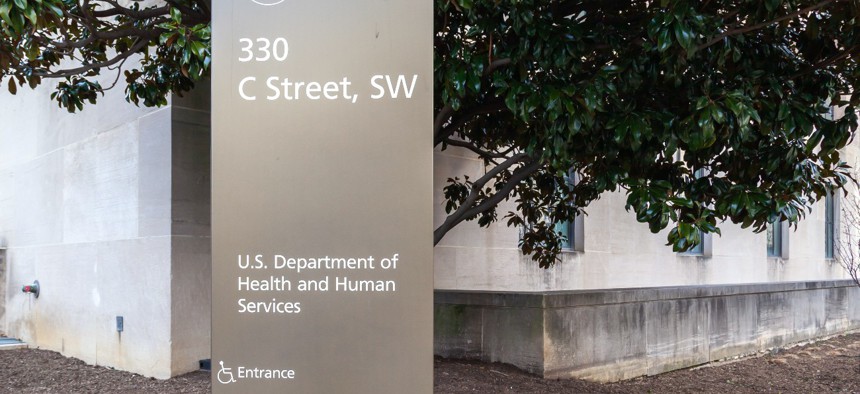
JHVEPhoto / iStock.com
The Government's Top Watchdog Has Added Pandemic Response to Its High-Risk List
Longstanding issues have exacerbated shortcomings during the COVID-19 pandemic, GAO says.
The government’s top watchdog is sounding the alarm on the Health and Human Services Department’s capacity to coordinate and lead response efforts during public health emergencies, saying its longstanding shortcomings inhibit COVID-19-related initiatives and future efforts.
The deficiencies have lingered for more than a decade, the Government Accountability Office said in a new report, limiting the government’s efforts during crises such as the H1N1 flu, Zika virus and Ebola outbreaks and culminating with the current pandemic. HHS’ inability to address its shortfalls compelled GAO to label HHS’ emergency response as a “high risk,” the most severe rating reserved for the most troubled government operations.
“This designation is in keeping with long-standing efforts to identify federal programs needing transformation, and to help ensure sustained executive branch and congressional attention so the nation is prepared for future emergencies,” GAO said.
Nearly two-thirds of the recommendations GAO has issued since 2007 related to public health emergencies remain unaddressed. The auditors faulted HHS for failing to ensure clear intergovernmental coordination, improve data collection, issue clear communications, improve transparency and recognize the limitations of its partners. Specific areas with room for improvement include the repatriation of citizens during an emergency, biodefense, supply chain management, the interoperability of health care systems and vaccine development.
HHS has obligated 80% of the $484 billion Congress has provided the department since the outset of the pandemic, but actually spent less than half of that total. GAO criticized the Biden administration for failing to spell out exactly how it plans to spend the remaining funds.
While the pandemic remains the most acute emergency for the government to address, GAO warned it is likely to face many more crises in the near future.
“As devastating as the COVID-19 pandemic has been, more frequent extreme weather events, new viruses, and bad actors who threaten to cause intentional harm loom, making the deficiencies GAO has identified particularly concerning,” the auditors said.
GAO typically releases its High Risk List every two years, at the start of each Congress. The list is reserved for agencies and programs particularly vulnerable to waste, fraud and abuse, or in need of a total overhaul.
Thursday’s report was the ninth GAO has issued on the federal government’s COVID-19 response. Agencies have implemented just 38% of the 246 recommendations GAO has made, and has fully addressed just 16%. In addition to HHS’ larger coordination role, it took issue with the execution of several pandemic programs.
The Treasury Department has disbursed more than 80% of the nearly $47 billion it received to provide rental assistance, but GAO said it has done so without much effort to identify or recover overpayments. It has provided grants to state and local governments to reimburse landlords and others, but it has no process for resolving errors and waste. The Office of Management and Budget has yet to issue guidance for auditing the program. At this point, GAO said, addressing the issue may be impossible, but Treasury agreed to develop new processes.
The Agriculture Department’s Food Nutrition Service has never developed a comprehensive strategy for how to deploy its food assistance programs during a public health emergency, GAO said. It added the nutrition service should improve its assistance in helping state and local governments determine eligibility for a COVID-19 program aimed at ensuring children missing school lunches still receive food. The agency’s existing pandemic plan is outdated, the auditors explained, and the nutrition service has been slow to incorporate lessons learned from the pandemic.
“Such a strategy could help FNS ensure that individuals and households maintain food security in times of heightened need and that FNS does not miss opportunities to coordinate with vendors across the country,” GAO said.
A tax benefit aimed at helping businesses with operating losses during the pandemic has also left the Internal Revenue Service ill-prepared to handle an influx of cases. Additional requests for refunds through the program have spiked by 276%, GAO said, and IRS has been unable to process them in line with statutory deadlines. That results in delays for taxpayers and costly interest payments for the government. IRS leadership has frequently warned that understaffing and new pandemic responsibilities have left the agency without enough resources, especially during the current tax filing season.







